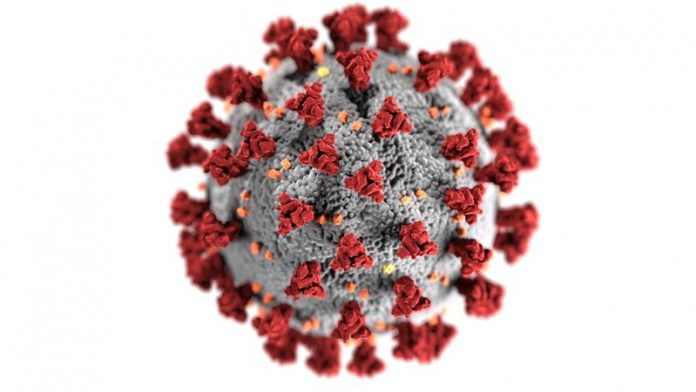
Unlike other coronaviruses, which cause common colds and mild respiratory symptoms, SARS-CoV-2, the causative agent of COVID-19, is highly infective and transmissive.
Until now, major questions have remained unanswered as to why SARS-CoV-2 readily infects organs outside of the respiratory system, such as the brain and heart.
In a recent study at the University of Bristol and elsewhere, researchers found what makes the COVID-19 virus highly infectious and able to spread rapidly in human cells.
They reported how the virus’s ability to infect human cells can be reduced by inhibitors that block a newly discovered interaction between virus and host, demonstrating a potential anti-viral treatment.
The study is published in Science. One author is Professor Peter Cullen.
To infect humans, SARS-CoV-2 must first attach to the surface of human cells that line the respiratory or intestinal tracts.
Once attached, the virus invades the cell then replicates multiple copies of itself. The replicated viruses are then released leading to the transmission of SARS-CoV-2.
The virus’s process of attachment to and invasion of human cells is performed by a viral protein, called the ‘Spike’ protein.
Understanding the process by which the ‘Spike’ protein recognizes human cells is central to the development of antiviral therapies and vaccines to treat COVID-19.
In this study, the team used multiple approaches to discover that SARS-CoV-2 recognizes a protein called neuropilin-1 on the surface of human cells to facilitate viral infection.
Importantly, by using monoclonal antibodies—lab-created proteins that resemble naturally occurring antibodies—or a selective drug that blocks the interaction they were able to reduce SARS-CoV-2’s ability to infect human cells.
This serves to highlight the potential therapeutic value of the discovery in the fight against COVID-19.
Intriguingly, scientists at the Technical University of Munich and elsewhere have independently found that neuropilin-1 facilitates SARS-CoV-2 cell entry and infectivity.
The team says to defeat COVID-19 we will be relying on an effective vaccine and an arsenal of anti-viral therapeutics.
The new discovery of the binding of the SARS-CoV-2 Spike to neuropilin-1 and its importance for viral infectivity provides a previously unrecognized opportunity for anti-viral therapies to curb the current COVID-19 pandemic.
Copyright © 2021 Knowridge Science Report. All rights reserved.



